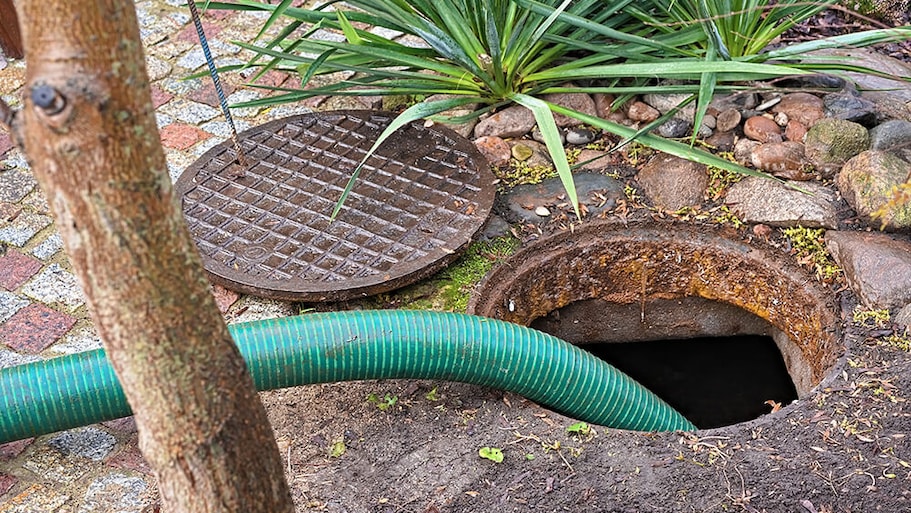
Get matched with top septic tank pros in Elko New Market, MN
There are 3 highly-rated local septic tank pros.
Matching on Angi


TRUSTED BY HOMEOWNERS
 4.4
4.4  60
60 Verified Reviews for Septic Tank Service pros in Elko New Market, MN
*The Angi rating for Septic Tank Service companies in Elko New Market, MN is a rating based on verified reviews from our community of homeowners who have used these pros to meet their Septic Tank Service needs.
*The HomeAdvisor rating for Septic Tank Service companies in Elko New Market, MN is a rating based on verified reviews from our community of homeowners who have used these pros to meet their Septic Tank Service needs.
Last update on April 27, 2025
Septic tank pros in Elko New Market

When you need an emergency plumber or a drain cleaner, call Roto-Rooter Plumbing & Water Cleanup. Your fast & reliable plumber can fix any plumbing problem, including sump pumps, toilet repair, faucet repair, faucet replacement, garbage disposals, water heaters, bathtubs, showers, and outside faucets. Roto-Rooter is best known for drain cleaning & sewer cleaning. We fix drain clogs, clogged toilets or sinks, blockage of main sewer lines, slow draining shower and bathtub drains, sewer lines and leaking or burst pipes. We also specialize in water damage restoration & water cleanup services. We can fix and clean up your flooded basement too. Roto-Rooter is a 24-hour plumber near you and provides emergency service.
"The plumber did a great job and came out within the hour. He gave me a quote after looking at the job and then when right to work."
Ernie P on January 2025
When you need an emergency plumber or a drain cleaner, call Roto-Rooter Plumbing & Water Cleanup. Your fast & reliable plumber can fix any plumbing problem, including sump pumps, toilet repair, faucet repair, faucet replacement, garbage disposals, water heaters, bathtubs, showers, and outside faucets. Roto-Rooter is best known for drain cleaning & sewer cleaning. We fix drain clogs, clogged toilets or sinks, blockage of main sewer lines, slow draining shower and bathtub drains, sewer lines and leaking or burst pipes. We also specialize in water damage restoration & water cleanup services. We can fix and clean up your flooded basement too. Roto-Rooter is a 24-hour plumber near you and provides emergency service.
"The plumber did a great job and came out within the hour. He gave me a quote after looking at the job and then when right to work."
Ernie P on January 2025

Aquarius Home Services is the top home service provider in Minnesota and Wisconsin. Offering expert service in HVAC, Water Softeners, Plumbing and Electrical . Our work is backed by a 100% performance guarantee.
"He walked me through every step of everything he needed to do and why he showed me the before, and after explained the benefits of the after, so it went great. Had a very pleasant person to work with left the place clean no mess everything done can’t say more than that!!"
Gary J on March 2025
Aquarius Home Services is the top home service provider in Minnesota and Wisconsin. Offering expert service in HVAC, Water Softeners, Plumbing and Electrical . Our work is backed by a 100% performance guarantee.
"He walked me through every step of everything he needed to do and why he showed me the before, and after explained the benefits of the after, so it went great. Had a very pleasant person to work with left the place clean no mess everything done can’t say more than that!!"
Gary J on March 2025

WE DO NOT PROVIDE SEPTIC PUMPING SERVICES Are you in need of a company that can provide all of your excavation and water needs? Well, search no more! Bohn Well Drilling of Jordan, Minnesota, is a full-service company that specializes in well drilling, septic system installation, and excavating services. Whether you need to have a water well drilled, a septic system installed, or your foundation dug, we have the equipment to get the job done right the first time. Our team of expert equipment handlers will take care of the job in a timely manner. With Bohn Well Drilling, we provide the Greater Minneapolis Area with an array of water well drilling services for our new and existing clients that include: Water well drilling Sealing of old wells Existing well repairs Pump installation Pump maintenance Well water treatment and testing
"I was able to schedule an immediate appointment and they had the products I needed at a cost effective price and did a great job!"
Debbie E on July 2020
WE DO NOT PROVIDE SEPTIC PUMPING SERVICES Are you in need of a company that can provide all of your excavation and water needs? Well, search no more! Bohn Well Drilling of Jordan, Minnesota, is a full-service company that specializes in well drilling, septic system installation, and excavating services. Whether you need to have a water well drilled, a septic system installed, or your foundation dug, we have the equipment to get the job done right the first time. Our team of expert equipment handlers will take care of the job in a timely manner. With Bohn Well Drilling, we provide the Greater Minneapolis Area with an array of water well drilling services for our new and existing clients that include: Water well drilling Sealing of old wells Existing well repairs Pump installation Pump maintenance Well water treatment and testing
"I was able to schedule an immediate appointment and they had the products I needed at a cost effective price and did a great job!"
Debbie E on July 2020

We are well diversed Excavating company with 20 years of experience in multiple fields. I personally value going above and beyond than what most normal contractors consider good enough, and we stride to constantly go above and beyond for our clients. Fair priced and honest, give us a call for free estimates.
We are well diversed Excavating company with 20 years of experience in multiple fields. I personally value going above and beyond than what most normal contractors consider good enough, and we stride to constantly go above and beyond for our clients. Fair priced and honest, give us a call for free estimates.
Air conditioning contractor , Electrician, HVAC contractor, Heating contractor, Furnace repair service, Insulation contractor, Air duct cleaning service, Air conditioning repair service
"Worst company that I have ever worked it. In my experience, plain dishonest. They have not only made a terrible job on my furnace installation (which replacement need was questionable - my mistake of agreeing to it), they also damaged my perfectly working AC. Now, they are giving me the run around for 4 months to refund the AC damage. I've been calling multiple time per week and also went in person to their office. Before wasting your hard-earned money, pay them a visit at 9609 Girard Ave S, Bloomington, MN 55431 and get inside the office, then make your decision."
Marcelo H on August 2024
Air conditioning contractor , Electrician, HVAC contractor, Heating contractor, Furnace repair service, Insulation contractor, Air duct cleaning service, Air conditioning repair service
"Worst company that I have ever worked it. In my experience, plain dishonest. They have not only made a terrible job on my furnace installation (which replacement need was questionable - my mistake of agreeing to it), they also damaged my perfectly working AC. Now, they are giving me the run around for 4 months to refund the AC damage. I've been calling multiple time per week and also went in person to their office. Before wasting your hard-earned money, pay them a visit at 9609 Girard Ave S, Bloomington, MN 55431 and get inside the office, then make your decision."
Marcelo H on August 2024
Drain Cleaning, Sewer Service, Septic System Service, Excavating, Frozen Lines, Jetting
Drain Cleaning, Sewer Service, Septic System Service, Excavating, Frozen Lines, Jetting
Want an Awesome looking website that also Ranks in the search engines? If you're expecting for it to generate new customers it's vital potential customers find it when they search. This is called Search Engine Optimization. Everyone and their brother are building websites these days, and ironically they are all SEO experts. Most people are smart enough to figure out this isn't true. We are 100% from the United States. Our team is comprised of Graphic Designers, a content writer and one of the Best SEO's in the Country. We have hundreds of #1 Rankings for some of the hardest search terms available. Ask to see some samples. Wicked Web Design is a division of Justin Monk SEO. It became a division to full-fill the entire package. Anyone can build a website, but if the on-page optimization isn’t done correctly the website will never rank. The customer then is forced to pay to have it re-done. Here’s where it gets tricky. Everyone says they are good at SEO, when actually very few are. It definitely isn’t fair to you the customer. Please do your homework and check their rankings. If they don’t have rankings chances are they aren’t very good. We rank in every city we have targeted. Ask to see the list. Awesome web Design mixed with Dominating SEO is a combination any company looking to destroy their competition can’t go without. Please allow extra time for our website (Visit Website) to load, the Demo is displaying all features available which dramatically slow down the loading speed. All the features are displayed so you can choose which ones you want for your website which will be much faster.
Want an Awesome looking website that also Ranks in the search engines? If you're expecting for it to generate new customers it's vital potential customers find it when they search. This is called Search Engine Optimization. Everyone and their brother are building websites these days, and ironically they are all SEO experts. Most people are smart enough to figure out this isn't true. We are 100% from the United States. Our team is comprised of Graphic Designers, a content writer and one of the Best SEO's in the Country. We have hundreds of #1 Rankings for some of the hardest search terms available. Ask to see some samples. Wicked Web Design is a division of Justin Monk SEO. It became a division to full-fill the entire package. Anyone can build a website, but if the on-page optimization isn’t done correctly the website will never rank. The customer then is forced to pay to have it re-done. Here’s where it gets tricky. Everyone says they are good at SEO, when actually very few are. It definitely isn’t fair to you the customer. Please do your homework and check their rankings. If they don’t have rankings chances are they aren’t very good. We rank in every city we have targeted. Ask to see the list. Awesome web Design mixed with Dominating SEO is a combination any company looking to destroy their competition can’t go without. Please allow extra time for our website (Visit Website) to load, the Demo is displaying all features available which dramatically slow down the loading speed. All the features are displayed so you can choose which ones you want for your website which will be much faster.
Rayco Excavating Inc. was established in 1973. It is an all Veteran employed business. It has Section 3, and VOP classifications.
Rayco Excavating Inc. was established in 1973. It is an all Veteran employed business. It has Section 3, and VOP classifications.
911 Restoration of Minneapolis is a full-scale water damage cleanup restoration company offering you peace of mind after a disaster. We provide water damage restoration, sanitization, mold removal, fire & smoke damage, reconstruction and everything in between with 24/7 availability. Take precautionary actions during the coronavirus. Our techs are trained to sanitize and clean your property with disinfection solutions and follow CDC and EPA protocols. Disasters can happen anytime due to pipe bursts, flood damage, roof leaks, storm damage or other water damage-related emergencies. Fortunately, our IICRC-certified techs will rapidly respond within 45 minutes to handle any water related emergency and help minimize damage.
911 Restoration of Minneapolis is a full-scale water damage cleanup restoration company offering you peace of mind after a disaster. We provide water damage restoration, sanitization, mold removal, fire & smoke damage, reconstruction and everything in between with 24/7 availability. Take precautionary actions during the coronavirus. Our techs are trained to sanitize and clean your property with disinfection solutions and follow CDC and EPA protocols. Disasters can happen anytime due to pipe bursts, flood damage, roof leaks, storm damage or other water damage-related emergencies. Fortunately, our IICRC-certified techs will rapidly respond within 45 minutes to handle any water related emergency and help minimize damage.
Delta Van Lines one of the most trusted Nationwide movers provides the first-class treatment that your belongings deserve. Our moving company offers a variety of moving services that can be customized based on your specific requirements. Are you looking for a local or state-to-state moving solution? Choose Delta Van Lines to ensure your moving experience is absolutely smooth and free from any kind of stress or confusion. If you are looking for someone to facilitate a residential or corporate relocation or a local or long distance move, Delta Van Lines is the name you can count on for impeccable quality of moving services Here at Delta Van Lines, customer satisfaction is our number one priority. We look forward to assisting you with all your moving needs! Call us today for a free quote at 800-544-1380
"very smoothly"
Sukran A on August 2018
Delta Van Lines one of the most trusted Nationwide movers provides the first-class treatment that your belongings deserve. Our moving company offers a variety of moving services that can be customized based on your specific requirements. Are you looking for a local or state-to-state moving solution? Choose Delta Van Lines to ensure your moving experience is absolutely smooth and free from any kind of stress or confusion. If you are looking for someone to facilitate a residential or corporate relocation or a local or long distance move, Delta Van Lines is the name you can count on for impeccable quality of moving services Here at Delta Van Lines, customer satisfaction is our number one priority. We look forward to assisting you with all your moving needs! Call us today for a free quote at 800-544-1380
"very smoothly"
Sukran A on August 2018
Septic tank services FAQs
Yes, most states require septic tank installers to have a license, and for good reason. Hiring an unlicensed septic tank pro could lead to poor quality work, costly future expenses, and potential code violations.
As you browse our pro listings, take note of the “Angi Approved” badge. Angi Approved businesses meet our standards for certification which include:
The owner, principal, or relevant manager passed a criminal background check
Required to have applicable state and local licenses
Maintain an average star rating of 3.0 or better on our network, if they have at least one review
Paying to advertise their services
Meeting any other eligibility criteria required by Angi
Keep in mind licensing is different from certifications. A license is a legal requirement to operate a business, while certifications are voluntary.
The cost to replace a septic tank is $7,350 for the average homeowner. This cost can range, however, from $470 to $22,500, depending on several factors. Your house size is a significant factor in the overall cost, but other things like material type impact the final price tag. For example, installing a new septic tank in a one-bedroom house typically costs $500 to $900, whereas installing a new septic tank in a five or six-bedroom home is generally $1,200 to $1,600.
The cost of septic tank repair is $1,775 for the average homeowner. However, depending on a few elements, you might pay as little as $170 or as much as $6,100. Location, repair type, and tank material all determine the final cost. For example, replacing the septic tank filter can be as little as $200 to $300. However, repairing septic lines costs more, averaging around $1,500.
A septic tank can typically last 15 to 20 years on average, though your system's lifespan will vary depending on the type of septic system and the materials used. To help increase your septic tank's lifespan, schedule routine maintenance and do not flush items like cat litter, cigarette butts, or paper towels.
Repairing or replacing a septic tank is a job best left to a professional. Your septic tank is an essential part of your home, and if installed or repaired incorrectly, it could lead to significant problems. Things like polluted water, property damage, and health risks to your family could all happen as a result of an improper septic tank repair or installation.


















